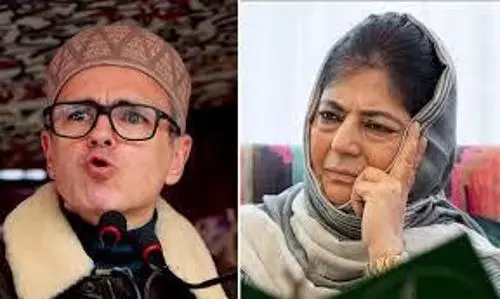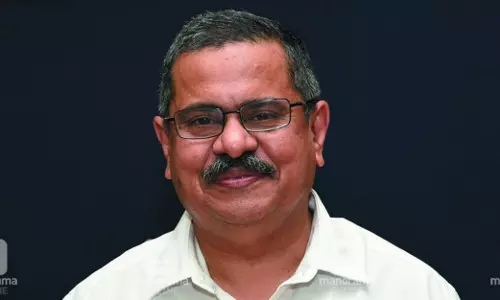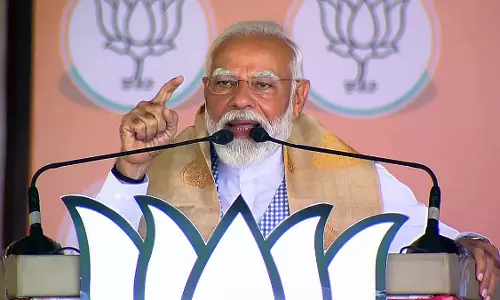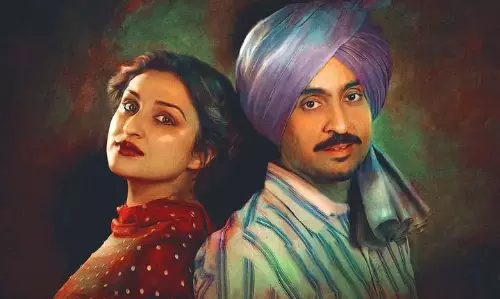
Saffron terrorism cases that fizzle out
text_fieldsThe verdict in the Samjhauta Express blast case from the special NIA court in Panchkula acquitting all accused, is saddening though not unexpected. What has come of the Samjhauta case is no different from several other cases against the Hindutva terrorists that shook the country and took many lives. The gang who conducted this blast on the train travelling from Delhi to Lahore in Pakistan on 19 February 2007, was the same that conducted blasts in Makkah Masjid, Malegaon and Ajmer, with the slogan 'Bomb ke badla bomb hai' (bom in reply to bomb).
The Samjhauta blast killed 68 people and many were injured. The main accused including Asimanand, Lokesh Sharma, Kamal Chauhan and Rajinder Chaudhary were the ones who were acquitted on Wednesday. Other accused Ramchandra Kalsangra, Sandeep Dange and Amit could not be arrested so far, and had already ben declared absconding by the court. The mastermind of the blast, RSS pracharak Sunil Joshi from Indore, had been killed by gunshots in his own residence in December 2007, leaving suspicions that it was Hindutva terrorists themselves who killed him to destroy evidence. Asimanand had already been acquitted in the Ajmer and Makkah Masjid blast cases.
Only in December 2010 did the outside world come to know the startling facts about the saffron terrorist network operating in the country, when Asimanand gave his confession statement to the Tis Hazari court in Delhi. This statement, given before the Metropolitan magistrate under Section 164, contained shocking details about the sangh parivar's plans to conduct blasts far and wide, targeting Muslims. Asimanand's statement came to light even as Muslim youths were rounded up, were charged and were being tortured in Makkah Masjid, Ajmer and Malegaon blast cases. The explosive substances for the terrorist attacks were procured and delivered by an army officer Lt Col Purohit. This finding, in the course of investigating other terrorist cases, by Mumbai's anti-terrorist squad chief Hemant Karkare, was one that proved the sangh parivar connection in the serial blasts. The similarities between Karkare's findings and the content in Asimanand's statement showed the credibility and authenticity of the facts.
But it was at the time Karkare's investigation was progressing that he got killed in the middle of the terrorist attack in Mumbai, and in mysterious circumstances. Enough debates ensued then about the deep state that was forming in the country. It transpired then that as a pattern whenever the sangh parivar and BJP governments get into a crisis, and when they have any political targets to achieve, some unexplainable terrorist attacks take place. It is also a repeated feature for Muslim youths to be arrested in the name such attacks, be subjected to severe torture, and after ten or fifteen of years trial and detention to be acquitted for want of evidence. But never do the conspirators of these events come to the fore. And what made cases of Makkah Masjid, Malegaon, Ajmer and Samjhauta Express stand out is that, as a deviation from the norm followed in other cases, here Hindutva terrorists were arrested and evidence gathered against them. But following the Modi government's taking office, these cases were seen fizzling out one after the other, the NIA court verdict in the Samjhauta case being the latest in the series.
Whether NIA will go in appeal against the verdict remains to be seen, for NIA officials reacted that they will decide after studying it in detail. However, NIA had not filed appeals against the verdicts in Ajmer and Malegaon cases; therefore it would be foolish to expect it to take a different course in Samjhauta case alone. Most of those killed and injured in the Samjhauta blast were Pakistanis. For that very reason, 13 witnesses in the case are Pakistanis. But curiously enough, the verdict with acquittals came without trying a single witness from them. A couple from Faisalabad in Pakistan, Rana Shaukath Ali and Ruksana, who were injured and had lost five of their children in the blast, had approached the court on 11 March 2019 and pleaded to be tried, but were not examined. That is to say, this verdict has come out after a strange and inexplicable process of trial, something that saddens every one believing in rule of law and peace.
In a system where investigative agencies have been reduced to parrots in a cage, there is no point in expecting NIA to go in appeal either. Therefore, human rights movements and democratic activists should seriously ponder on proceeding with this case in the lagal track. What a lamentable spectacle would it be if terrorist outfits vowed to destroy our very country, strut about in glee!























